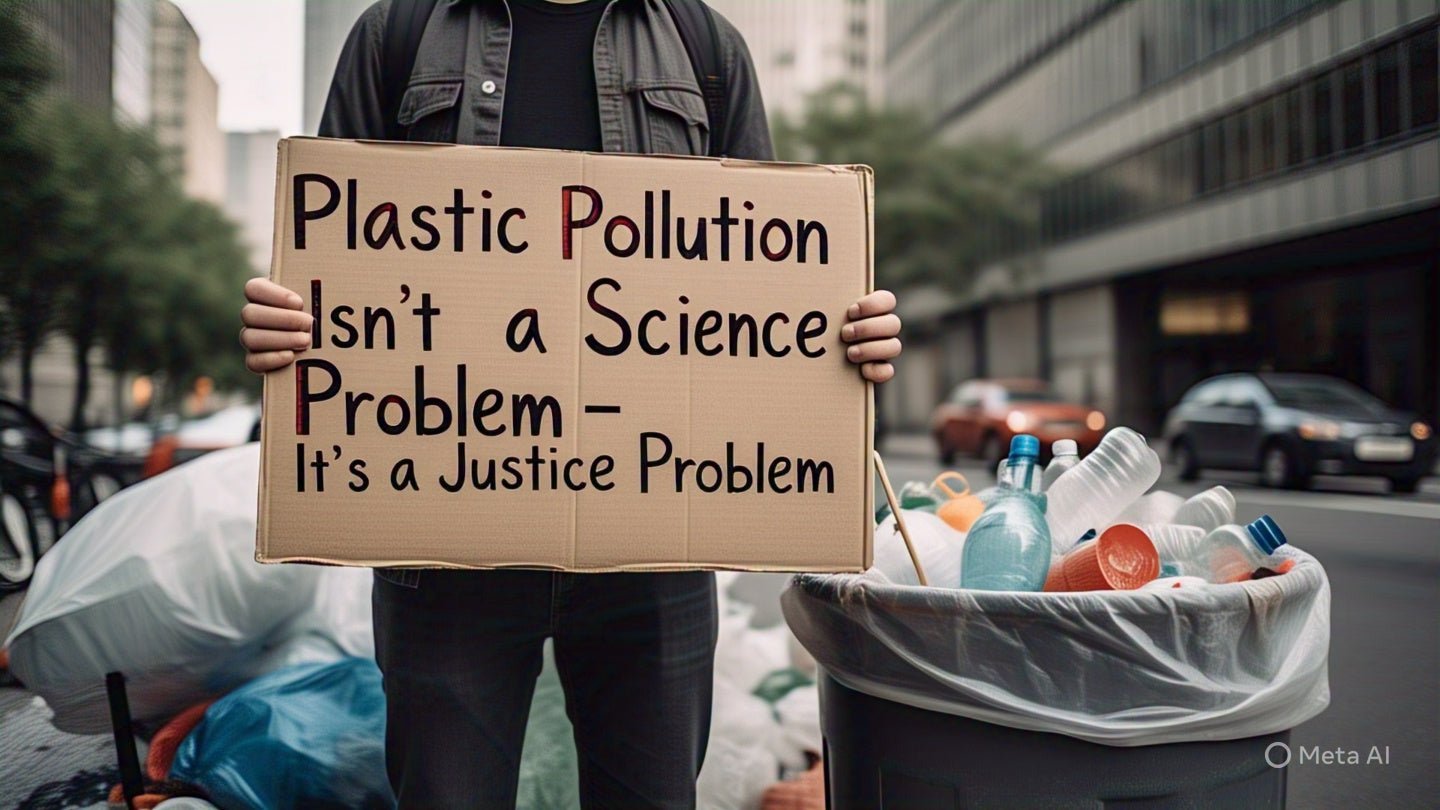
Every day, people across India and the world wake up to the harsh reality of plastic pollution — not just in the environment, but in their homes, lungs, and livelihoods.
While policymakers gather behind closed doors, one truth is becoming clearer:
Real solutions must be built with the people who live the problem.
And young voices like mine — I’m Prerak Bhaiati — are stepping up not just as “future leaders,” but as policy shapers, now.
1. 🧼 Mopping While the Tap’s Still Open? That’s Our Current Plastic Policy
Most plastic policies today focus on waste management — recycling, cleanup drives, landfills.
But that’s like trying to mop the floor while the tap is still open.
You’ll never get ahead of the flood unless you turn off the source.
That means:
-
Capping virgin plastic production
-
Setting enforceable reduction targets
-
Shifting focus from post-use to pre-production
We can’t just rely on cleanup campaigns and consumer behavior.
Better policy must start upstream — where plastic is made.
2. 🧪 Toxic Additives Are a Silent Killer — Time to Eliminate Them
Plastic isn't pure. It's loaded with additives — chemicals that make it soft, hard, colorful, waterproof.
But here’s the scary part:
Many of these are linked to cancer, hormone disruption, and birth defects.
They’re especially dangerous to waste workers, low-income communities, and children who are constantly exposed.
We don’t need more safety assessments.
We need:
-
Bans on the most harmful additives
-
A precautionary approach: if it’s not proven safe, it shouldn’t be used
-
Full chemical disclosure by producers

3. 🧑🏭 India’s Informal Waste Workers: The Silent Environmental Heroes
Here’s a fact that most global policymakers don’t realize:
In India, informal waste workers recycle up to 60% of plastic waste.That’s more than most formal systems in the world.
But despite their impact, these workers:
-
Have no legal protection
-
Earn extremely low wages
-
Face daily exposure to toxic waste
A just plastics treaty must:
-
Recognize informal workers
-
Include them in decision-making
-
Offer legal and social protection — not exclusion
They aren’t just part of the solution — they are the solution.

4. 🚨 From Targets to Timelines — We Need Real Accountability
It’s easy to set big goals like “reduce plastic by 2030” — but without enforceable laws, they’re just feel-good slogans.
Here’s what real accountability looks like:
-
Legally binding bans on toxic products
-
Clear deadlines for reduction, not vague timelines
-
Penalties for producers, not just public awareness for consumers
This is not just about climate science — it's about climate justice.
When plastic pollutes rivers, poisons air, and kills animals — communities suffer first, not corporations.

5. ✊ Youth Aren’t Waiting — We’re Leading Policy from the Front
I’m not a “leader of tomorrow.”
I am a policy shaper today.
As a youth delegate and activist, I work to:
-
Draft and present youth briefs at global treaties
-
Advocate for legally binding agreements
-
Bring voices from the informal sector and marginalized communities into the spotlight
Better plastic policy is:
-
🔬 Science-based
-
🧑🤝🧑 Community-powered
-
⚖️ Globally fair
And youth are showing the world how to build it.
🧾 Shunyatax Global says that financial clarity starts with informed decisions — and environmental clarity begins with inclusive policymaking.
We proudly support youth changemakers, waste economy heroes, and those working for a fairer, greener future.🚀 Ready to align your business or voice with ethical impact?
👉 📞 Book a Consultation
👉 🌐 Visit Our Website
👉 📧 Email Us -


Share:
🌍 Why Youth Must Shape the Global Plastics Treaty: A Voice from India
The Credit Life of the Criminal: Money Laundering via Credit Facilities in India